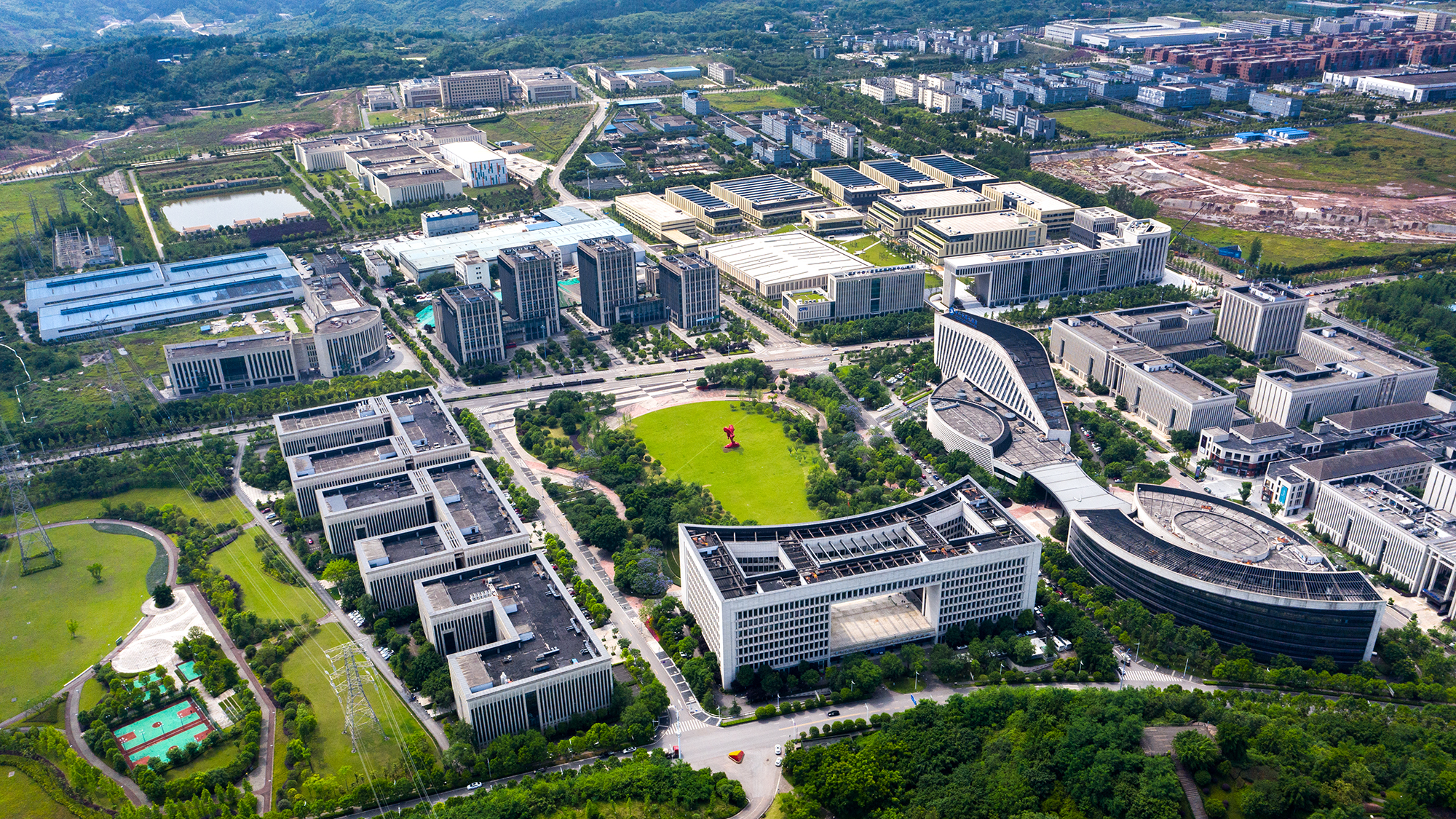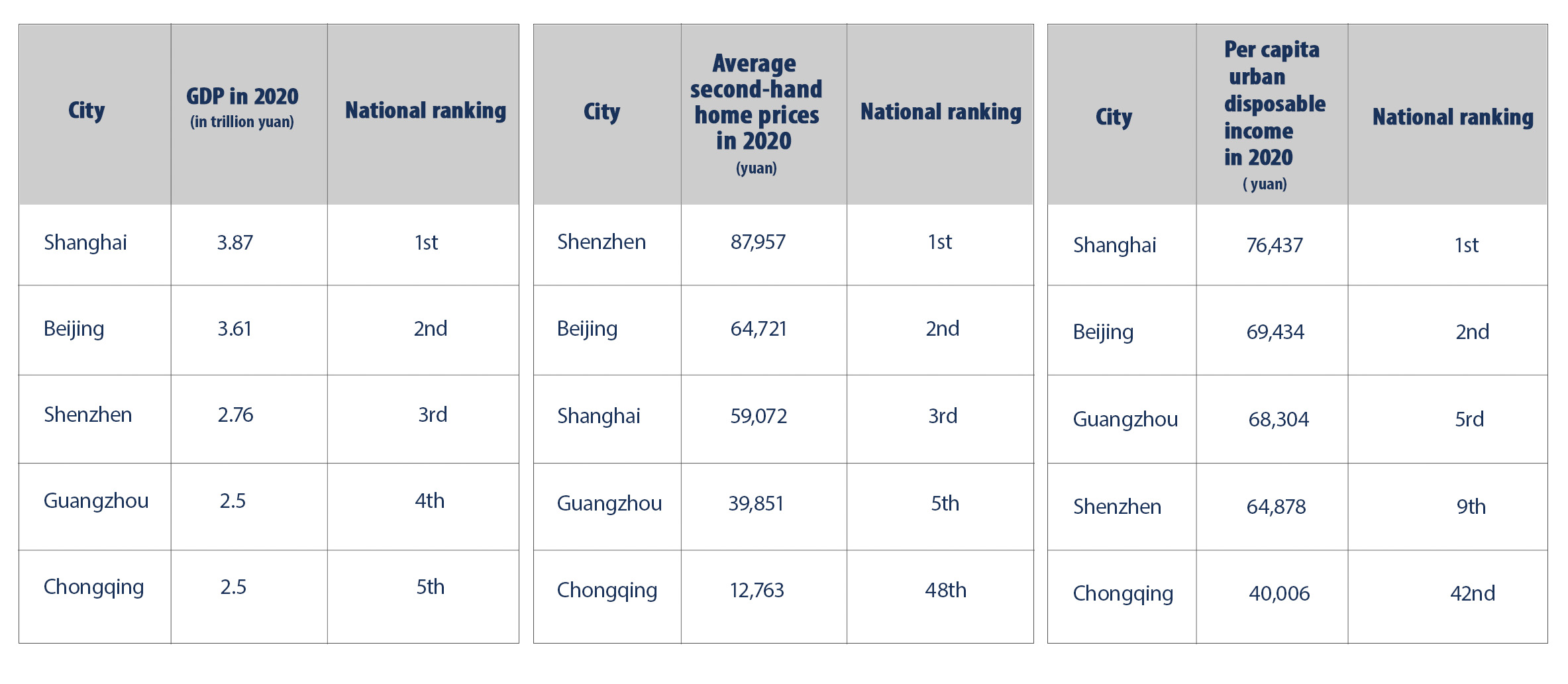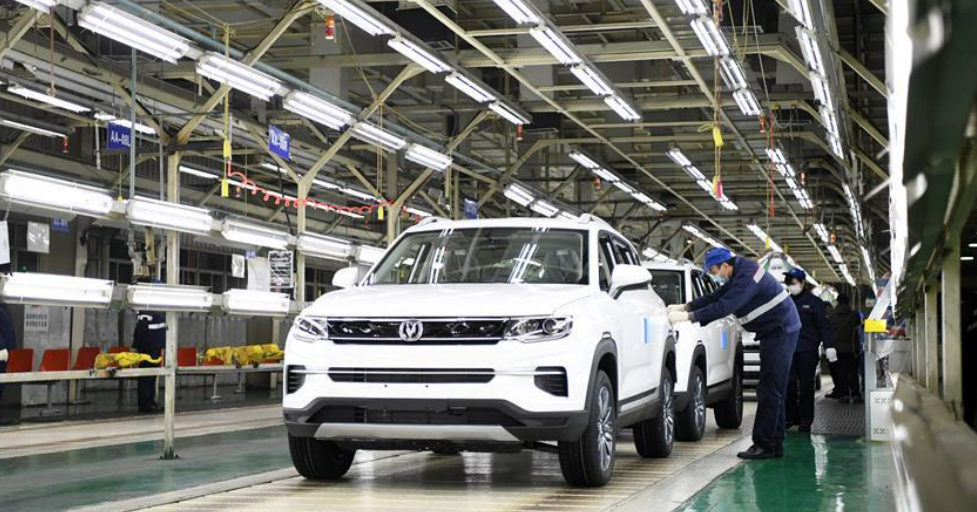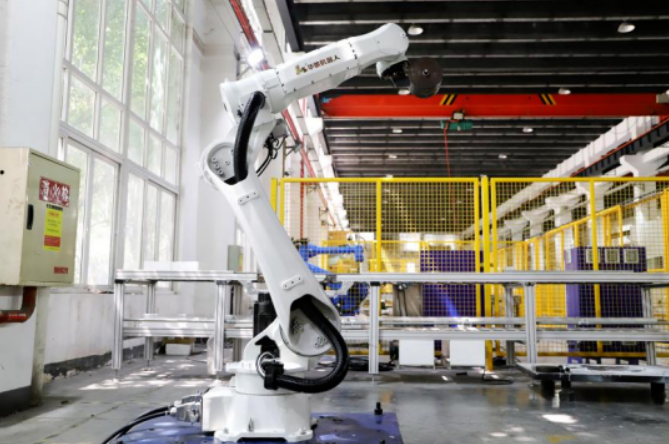Twenty-nine-year-old Qian Bin pays no rent for his comfy, medium-sized apartment. As an employee of one of China's most profitable tech firms, the young HR trainer was qualified to move into what is called a "talent condo." The flat's location is so convenient that it takes him only 15 minutes to commute between work and home. After work, he visits parks or pubs to hang out with his friends, without having to step out of the area he has grown accustomed to.
Qian has built an enviable life in the fast-growing urban city of Chongqing. While where he lives is nowhere near the center of the mountainous municipality, a bustling work environment and a vibrant social life give him the same feeling of being at the center of things.
Chongqing is quietly emerging as a production center that supports some of the largest traditional industries and leads in sectors China considers imperative for developing self-sufficiency. Many talents like Qian live and work in a new high-tech town called Shuitu, which has become a key part of Chongqing's economy in recent years.

An aerial view of Shuitu, Chongqing, China. /Courtesy of freelance photographer Zhang Kunkun
An aerial view of Shuitu, Chongqing, China. /Courtesy of freelance photographer Zhang Kunkun
Located in the northwest part of Chongqing in what used to be considered the city's outskirts, the sprawling tech community spans over 25 square kilometers across New Liangjiang District and embodies the sweeping transformation of the heavy industrial city.
Thousands of "talent condos" like Qian's incentivize young adepts to stay. But that's not the only plus point. Compared to China's other top-tiered cities, Chongqing also has a moderate housing market.
Property prices in the city are relatively stable, which is one of the reasons high-tech companies are increasingly looking to establish a presence there, according to Zhou Jianguo, deputy CEO of Shuitu Investment, a government-backed firm responsible for promoting the community.

"Chongqing could be one of the metropolises where many promising young people will actually consider settling," he said.
For Yulong Optoelectronics, one of the city's best-known display makers, this well-established pool of human resources is one of the primary reasons the company based its research and development center in Shuitu.
Over 90 percent of the company's staff either graduated from local universities or hold a Chongqing hukou - the registered permanent residence - according to Guo Fei, HR director of Chongqing Yulong Optoelectronics.
Yulong is one of the dozens of optoelectronic companies hoping to tap into Chongqing's massive industrial market. Long known as a manufacturing hub for laptops, pharmaceuticals, automobiles, motorcycles and more, Chongqing is home to some of China's largest enterprises in these sectors. Car manufacturer Chang'an Automobile, laptop producer Yingyeda Chongqing and drugmaker Chongqing Chemical & Pharmaceutical are among the top contributors to the GDP for both the city and the wider southwest region.

Cars made by Chang'an Automobile are seen inside one of its plants. /Xinhua
Cars made by Chang'an Automobile are seen inside one of its plants. /Xinhua
Shuitu is where the bulk of their suppliers race to keep their production engines at full capacity. Optoelectronic devices, such as LEDs, laser diodes and solar cells, make up an indispensable part of a wide range of tech items that are transforming people's lives. Yulong, for example, makes OLED control panels and LCD panel modules for companies including China's largest display product manufacturer BOE Technology, which also has a subsidiary in Shuitu.
"We have six other divisions across China, but its most innovative offices are based here because of a cluster effect," Guo said.
By cluster effect, Guo means the convergence of a deluge of companies covering semiconductors, optoelectronics, and other sectors essential for making tech products. Spurred by strong local incentives, immense market potentials and a national campaign to shake off dependence on foreign technology, these high-tech manufacturers have moved in and helped build an ecosystem that most find irresistible.
"This is a guarantee for mature industrial chains and the supply of experienced workers and researchers," he said.
Zhou from Shuitu Investment is proud of having been involved in the effort to tackle China's most pressing issues.
"To bring in companies, we have tried to promote an environment replete with energy and invigoration," he said. "We have also been known for providing 'nanny-like' services."
"The marketing environment in Shuitu is impressive. We have secured many orders thanks to it," said Wang Xuli, deputy general manager of Chongqing Huashu Robotics, a leading domestic robot manufacturer that churns out about 10,000 robots annually.
For Huashu's Chongqing division, the opportunity also lies in the city's pillar industries. The company's presence reflects Chonging's "smart manufacturing" concept and acts as a microcosm of an industrial robotics cluster shaping up in the metropolitan.

A robot made by Huashu Robotics is seen inside one of its plants. /Xinhua
A robot made by Huashu Robotics is seen inside one of its plants. /Xinhua
In Shuitu, a training school for robotic applications, a division of the National Robot Test and Assessment Center, which gives licenses to "newborn" robots, and a top-notch exhibition hall for both marketing and tourism, present a prelude to the impressive scenes where thousands of robots assemble parts and components for car manufacturers, laptop makers and other electronic product plants.
Aside from a vast market that absorbs the capacity generated by the over 300 robot manufacturers that have flocked to Chongqing – largest among them the world's top four: FANUC, Kawasaki, Kuka and ABB – some of the corporate services there offer an impetus to keep their production lines busy.
Government-backed investment firms have set up robot leasing companies to help ease the financial burden of smaller manufacturers that may find the cost of making one-time purchases too high, Zhou said.
While competition could be intense in an area densely populated by peer groups, innovation is driven further and a slew of supporting infrastructure makes it easier for companies to evolve. Huashu, which has benefited from Shuitu's R&D subsidy program, has developed cutting-edge technologies that help it stay ahead in an industry long dominated by Japanese firms.
The myriad achievements are a testament to the tech boom in Shuitu, "and this is what we have hoped to achieve," Zhou said.
(Graphic by Xing Cheng)

